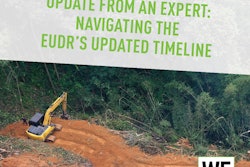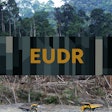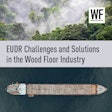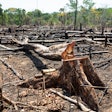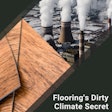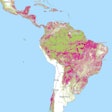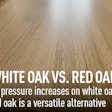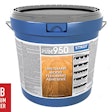I recently spoke with the Malaysian Minister of Plantation Industries & Commodities, Mr. Bernard Dompok, and learned more about the species available out of Malaysia. Here are some of the specifics facts and figures he and the MTC (Malaysian Timber Council) provided:
Plantation timbers grow quickly in Malaysia's tropical climate. The ministry is committed to ensure that the supply of timber raw materials for industry use is more consistent, and will serve to relieve the pressure on natural forests.
- For rubberwood, superior timber latex clones have been developed by the Rubber Research Institute of Malaysia to offer planters with a good yield of latex throughout the trees' latex-producing years, and good timber material later.
- The available rubberwood supply averages at 1.4 million m3, while consumption averages about at 1.0 million m3 per annum. Malaysia grows more rubberwood than they cut.
- There is an export quota of 50,000 m3 allocated to rubberwood exporters.
- A large percentage of rubberwood (>90 - 95%) is processed into value-added products like furniture, flooring, moldings, doors, etc., and only a small percentage is exported as rubberwood sawn timber.
- Rubber plantations are a source of latex, which is utilized in the production of rubber-based products. These include natural rubber examination gloves, automotive components and other associated products.
- Rubber trees can be tapped for latex for up to 32 years, with production starting at 7 years. In comparison, oil palm trees have a production life of 25 years, with harvest starting from 30 months onwards.
- Palm oil is a highly versatile oil that could be used for both food and non-food purposes. Palm oil is the leading edible oil traded and consumed globally, with a share of 56% and 26% of the total oils and fats, respectively. It also could be a source of renewable energy-palm-based biodiesel offers the potential to reduce dependency on fossil fuels.
- Oil palm tree trunks have been found to be suitable for the manufacture of plywood and furniture products. The ministry has facilitated the private sector to source oil palm trunks and other palm biomass for the manufacture of lumber and other building products.
- Acacia mangium is also used in the manufacture of furniture (both indoor and outdoor) as well as decking. However, Acacia mangium logs are also exported to Vietnam. The three plantation areas in Malaysia that are FSC-certified are mainly Acacia mangium plantations.
Read Next
















